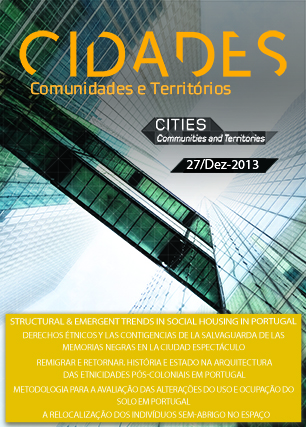Remigrate and return. History and state in the architecture of postcolonial ethnicities in Portugal
DOI:
https://doi.org/10.7749/citiescommunitiesterritories27310Keywords:
remigration, post-colinial ethnicities, migration historyAbstract
A significant part of the field of migration studies has been filled by theoretical-empirical debates around a characterization, which is also valuable, of the different models of the political framework of migratory phenomena. However, more or less close to the assimilationist, multiculturalist or even interculturalist model, the main analytical proposals in this field are largely centred on a set of agrarian assumptions of the migrant actor, their characteristics and skills, which would eventually define the probabilities of a more or less favorable trajectory. But the need to identify explanatory variables and sociological sense for what are accepted as regularities within the category of nationality, reconfigured in the homogenizing idea of community, has left a small space to think about the impact of structural measures on the migratory reality. This article aims to problematize the importance of the State as an agent for the creation of public policies to consolidate the dynamics of social incorporation of migrant populations, and its consequences with regard to the production of ethnic identity in a spatio-temporal context and for two populations: the migrant population referred to as 'returnees'; and the migrant population of Indian origin. At the same time, the idea of consolidation of the Social State in the context of the public policies designed to frame the returned population as a consequence of the decolonization process is recovered.Downloads
Published
Issue
Section
License
CIDADES, Comunidades e Territórios by DINÂMIA'CET-Iscte is licensed under a CC-BY licence.






